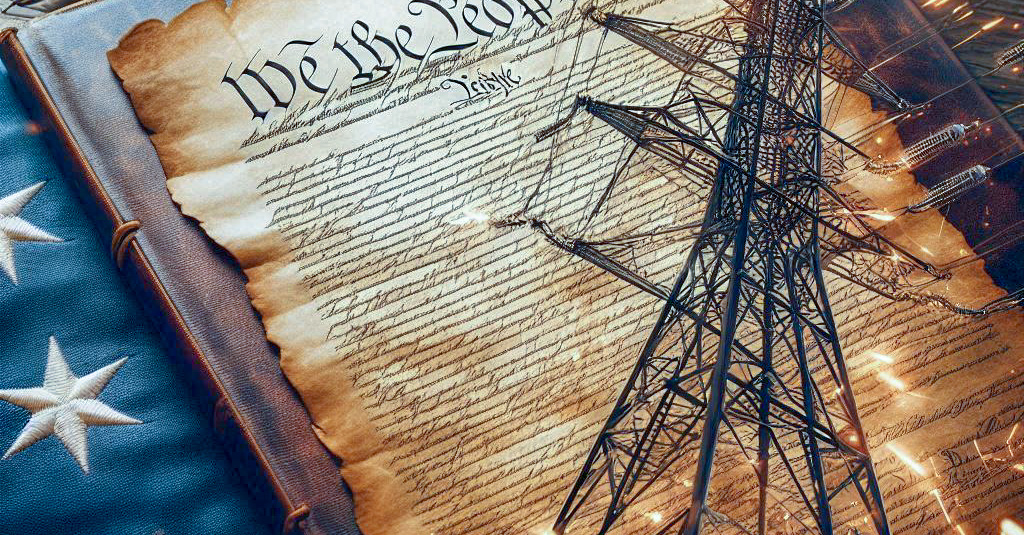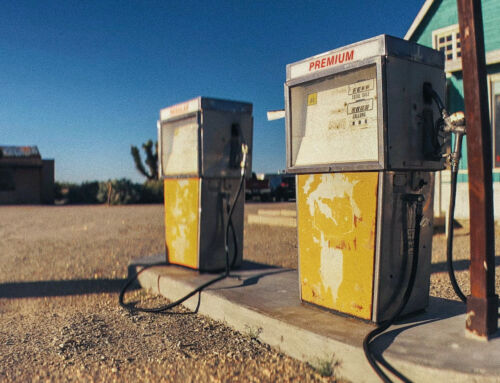View by Topic
Recent Articles
-
Congress Blocks California’s Gasoline Car BanSaturday, May 31st, 2025
-
EPA Will Keep Current Limits for “Forever Chemicals” in Drinking WaterSaturday, May 24th, 2025
-
Court Indefinitely Pauses SEC Climate Rule LitigationSaturday, May 17th, 2025
-
Maryland is About to Regulate Mold But is the Cart Before the HorseSaturday, May 10th, 2025
View by Month/Year
“Green Building Law Update” Headlines
Recent Articles & News from
Stuart Kaplow’s blog
at GreenBuildingLawUpdate.com
- Congress Blocks California’s Gasoline Car Ban: A Legal and Policy Analysis June 1, 2025
- EPA Will Keep Current Limits for “Forever Chemicals” in Drinking Water May 25, 2025
- Court Indefinitely Pauses SEC Climate Rule Litigation May 18, 2025
- Maryland is About to Regulate Mold: But is the Cart Before the Horse? May 11, 2025
Subscribe to the Green Building Law Update!
Stuart Kaplow brings his expertise and extensive experience to the table with his unique digital publication, "Green Building Law Update". Subscribers receive regular updates to keep them informed about important issues surrounding Environmental Law, Green Building & Real Estate Law, as well as the emerging demand for Environmental Social Governance (ESG).
Get fresh content through the lense of Stuart Kaplow's cutting-edge expertise, innovative commentary and insider perspective. Don't miss another issue! Subscribe below.

Lawsuit Against Maryland Challenges First Amendment Violations in Green Power Marketing
A group of energy companies are suing the State of Maryland challenging the recently enacted Senate Bill 1, which restrains truthfully marketing clean energy products including renewable electricity in the State, in violation of the First Amendment to the U.S. Constitution and Maryland Declaration of Rights.
They assert that the law imposes an unconstitutional “speech code” on suppliers of renewable energy, restricting the use of terms like “green, clean, eco-friendly, 100% solar,” and the like unless the providers adhere to the state’s preferred definitions, irrespective of the truth, and more ..
What does Senate Bill 1 say
Introduced in the Maryland General Assembly as Senate Bill 1 and signed into law on May 9, 2024, the law purports to be “[a]n Act concerning . . . regulation and consumer protection” in the retail energy supply sector. But in reality, the Act imposes a ‘Maryland specific environmental speech code’ on suppliers of renewable electricity who otherwise accurately, truthfully, and consistently with federal standards (.. that is complying with the Federal Trade Commission Green Guides) and other states’ laws, describe their products as “100% solar,” or the like. The Act prohibits suppliers of renewable electricity from truthfully and accurately describing their existing products as “green power,” under threat of civil penalties.
If an electricity supplier wants to market their electricity as “green power” they must adopt Maryland’s ‘preferred understanding’ of those terms, change the products they offer accordingly, and obtain advance approval of marketing materials from the Maryland Public Service Commission (.. can you say, prior restraint?) under a process that does not exist.
What is really going on?
This is not really a consumer protection law, so what is going on? Power suppliers sell green power by purchasing renewable energy certificates (also called renewable energy credits) “RECs,” from all over the country and pairing those RECs with the electricity they supply to their customers. RECs are fungible commodities that embody the renewable attributes of renewable energy generation and are recognized federally and by states as the way to substantiate “green power” claims.
But that will no longer be true in Maryland. Maryland’s new special concept of “green power,” however, would require all renewable electricity sold to Maryland customers to have at least 51% of the RECs sourced in Maryland.
That is, Maryland’s current Renewable Portfolio Standard requires both utilities and other suppliers to source 36% of the electricity sold in the state with RECs from specific types of energy (.. solar, wind, etc.). Prior to SB 1, retail energy suppliers could market electricity as “100% renewable” by obtaining an additional 64% of voluntary RECs, typically from sources within the U.S. After SB 1, energy suppliers are prohibited from calling these offerings “100% renewable.” To use those words, SB 1 requires retail energy suppliers to obtain at least 51% of their RECs from Maryland and only 49% from other sources, even though it is indisputable that the offering is in fact “100% renewable.”
You can’t handle the truth
The new law is little more than a misguided green power grab.
But more offensive than that bad public policy that will harm Maryland electricity customers without generating so much as one electron of new renewable power, to accomplish that, the government is foisting a speech code on electricity providers, when the Act violates the First Amendment of the U.S. Constitution and Article 40 of the Maryland Declaration of Rights by prohibiting telling the truth about the source of electricity.
A principal at a local electricity supplier has said, “.. you may remember the quote from the movie, A Few Good Men, when Jack Nicholson’s character, after being challenged for the truth by a defense attorney played by Tom Cruise, shouts, ‘You can’t handle the truth!’ This is more a George Orwell, ‘In a time of deceit telling the truth is a revolutionary act.’” For Maryland’s energy suppliers, that revolution may now come through the courts.
There are other problems with the new law beyond the free speech claims in the lawsuit, like it directs the Maryland Public Service Commission to set an annual price cap for all RECs tied to a historical average of utility pricing (.. before there was any quantity of renewable energy?) and limiting residential customers to one year contracts ( .. I have a 5 year fixed rate contract at 9.9 cents per kilowatt hour at my home that will no longer be available to others), etc.
What’s Next
While Maryland’s government aims to boost local renewable energy sources, the lawsuit raises important questions about the balance between state regulation, market forces, and the constitutional rights of businesses to speak truthfully about their offerings. With the case now in court, the outcome could set a significant precedent for both energy policy and First Amendment rights in the context of environmental marketing.
The 37 page lawsuit seeks a declaratory judgment against the State and the Maryland Public Service Commission and others finding that the Act is unconstitutional and seeking preliminary and permanent injunctive relief preventing the implementation and enforcement of the new law’s speech restrictions become effective on January 1, 2025.









